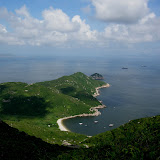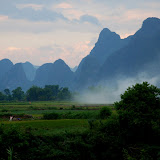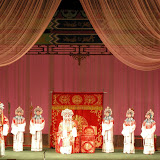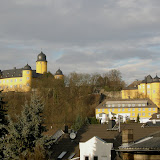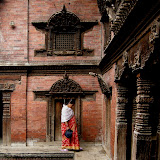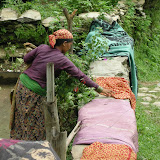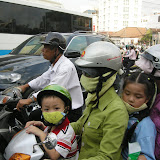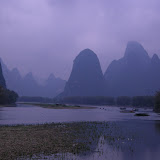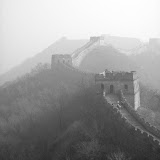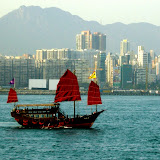从家向后穿过菜田往南丫岛的深处,经大坪村往山上走,有一段可从高处望海的很美的山径,这是我的 晨径。进入晨径前是一段葱郁的长路,此时野花缤纷。也是在这一段,每年初夏和晚秋,各色蝴蝶飞舞, 亦真亦幻。
晨径。进入晨径前是一段葱郁的长路,此时野花缤纷。也是在这一段,每年初夏和晚秋,各色蝴蝶飞舞, 亦真亦幻。
想起儿子在刚会说整句话后不久,有一天忽然问我: “蝴蝶死了以后就变成花了,是吧?”我笑了,说“是,蝴蝶象花一样美,可它小时候是只小肉虫儿。” 蝴蝶的生命,从沉重变轻盈,从丑陋变美丽,从平庸变灿烂,在我心里始终是个奇迹,好象一个绝不可能的梦想的实现。
中国最著名的有关蝴蝶的故事有两则,一是庄周梦蝶, 二是梁祝化蝶。庄周梦蝶讲的是道家的代表人庄子有一天梦到自己变成了一只蝴蝶,醒了之后感觉梦境中的一切如此真实,他问了一个问题:“我是谁? 我是庄周,梦到了蝴蝶,还是蝴蝶的一个梦, 蝴蝶梦到它变成了庄周?”这个故事中所隐含的哲学思想也可延伸至道家对生与死,现实与梦境等人生命题的阐释。梁祝化蝶是相爱的两个人生前被拆散,死后化作蝴蝶破坟而出,随风自由而舞,永远相依。
蝴蝶是中国人的一个梦境,它是自由, 是美, 是灵魂,是爱情,同时却也是死亡,是脆弱,是女人的虚荣和短暂的欢乐; 它的变形是从肉体到灵魂的解脱,从沉重丑陋的现实生活至美丽轻盈的精神世界的升华。而在传统中国文化中,死亡本身就是一种变形,而不是一个终结。
每每置身于这段蝴蝶纷飞的小径,我都有种伸出手去便触到梦的感觉。有时我想,如果我是一条匍匐而行的虫子,用我的一生做交换可以拥有蝴蝶的一天,我会愿意么?变作蝴蝶的我,还会有虫子的记忆么?
In the deeper part of North Lamma Island up to the hills beyond Tai Peng Village, there is a beautiful trail overlooking the sea. This is our Morning Trail. Leading to the entrance of the Morning Trail, a long pass winds through verdant woods and bushes. Now is time for wild flowers and butterflies. Every year in early summer and late autumn, many butterflies of different sizes and colors flutter on one section of this pass, making it almost dream-like.
I remember once being asked by my then two-year-old son: “when a butterfly dies, it changes into a flower, right?” I smiled and said: “yes a butterfly is as beautiful as a flower, but when it was young, it was a caterpillar”. To me, the metamorphosis in a butterfly’s life is an impossible dream that comes true.
In China, there are two most well-known butterfly stories – “Zhuangzi’s Butterfly Dream” and “Butterfly Lovers”.
The first one was about a dream of Zhuangzi, the Taoism philosopher who lived more than 2000 years ago in China. One day he dozed off and dreamed that he turned into a butterfly. When he woke up, the joyful feeling of a butterfly was so real, and he wondered who he actually was. Was he Zhuangzi who dreamed that he was a butterfly or was he the dream of a butterfly who dreamed it was Zhuangzi? The philosophical proposition implied here also extends to the Taoism view on life and death, reality and dream.
dreamed that he was a butterfly or was he the dream of a butterfly who dreamed it was Zhuangzi? The philosophical proposition implied here also extends to the Taoism view on life and death, reality and dream.
I remember once being asked by my then two-year-old son: “when a butterfly dies, it changes into a flower, right?” I smiled and said: “yes a butterfly is as beautiful as a flower, but when it was young, it was a caterpillar”. To me, the metamorphosis in a butterfly’s life is an impossible dream that comes true.
In China, there are two most well-known butterfly stories – “Zhuangzi’s Butterfly Dream” and “Butterfly Lovers”.
The first one was about a dream of Zhuangzi, the Taoism philosopher who lived more than 2000 years ago in China. One day he dozed off and dreamed that he turned into a butterfly. When he woke up, the joyful feeling of a butterfly was so real, and he wondered who he actually was. Was he Zhuangzi who
 dreamed that he was a butterfly or was he the dream of a butterfly who dreamed it was Zhuangzi? The philosophical proposition implied here also extends to the Taoism view on life and death, reality and dream.
dreamed that he was a butterfly or was he the dream of a butterfly who dreamed it was Zhuangzi? The philosophical proposition implied here also extends to the Taoism view on life and death, reality and dream. The Butterfly Lovers is a legend of the tragic romance between Liang Shanbo and Zhu Yingtai. When their hope of marriage was dashed when Zhu’s parents betrothed Zhu to another man, Liang died of a broken heart. On Zhu’s wedding day, she threw herself against Liang’s tomb. The tomb opened up and enveloped Zhu. Then a pair of butterflies emerged from the tomb and flew high freely and together.
To Chinese, butterflies symbolize freedom, conjugal love, beauty and soul but at the same time death, vulnerability of life, female vanity and transient joy. Its metamorphosis is the extrication from flesh to soul and rise from the heavy, ugly reality to the light and beautiful spiritual world. In traditional Chinese culture, death is anyway not seen as an end, but a metamorphosis into another form of existance.
Every time I walk along the butterfly section before the Morning Trail, I have the feeling that I can raise my hand and touch a dream. A thought often comes to mind. If I were a caterpillar and could exchange my whole life for a day as a butterfly, would I be willing to? When I became a butterfly, would I still carry the memories of a caterpillar?



